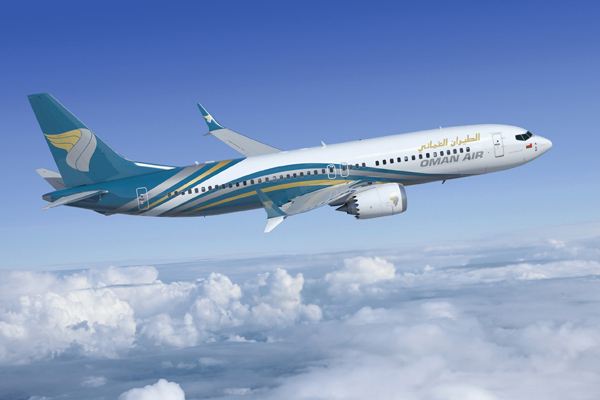Slowly but steadily the air travel sector is opening up after the crippling shutdown following the Covid-19 pandemic across the world. In a cautious approach to gradually starting operations, airlines have started announcing their tentative date of resumption of service. Industry players in Oman too are preparing for the eventual resumption of operations, even as emergency flights are being operated to evacuate people stranded in the Sultanate and to bring in Omanis stuck in other countries. It is widely expected that Oman’s airports will open soon for normal domestic operations as well as international flights even though confirmed announcements on this are awaited. Meanwhile, the sultanate’s airports are geared to implement a new set of SOPs (Standard Operating Procedures) for staff and passengers as part of its biosecurity measures. It is expected that modern innovative technologies would form part of the new SOPs to ensure compliance of Covid-19 related regulations at the airports. Currently, the biggest concern, as per an IATA press statement, for governments and airlines across the world is to implement biosecurity and ensuring the personal safety of the travelling public. Saleem Amanulla, Senior Vice President, Ground Operations, Oman Air, says while the outlook for the travel industry is grim in the short-term, the situation will not last long, as there is a concerted effort to address the challenges by the International Civil Aviation Organisation (ICAO) and International Air Transport Association (IATA). With the effective management of the spread of the coronavirus through ramped up tests and controls imposed, the Oman government has controlled not just the spread of the virus but also protected the public health, essentially leading to a seamless yet phased opening of businesses, including air travel. “A paradigm shift in technology is necessitated by the pandemic. However, it will take time to implement these as the travel industry is one of the most globalised and interconnected industry in the world and needs coordinated effort of multiple government authorities, airport operators and airlines to integrate the information process. One of the biggest challenges is to complete the airport process as per the guidelines. As a result, it is required to report for flight four hours before the departure. “It will also change inflight experiences such as baggage allowances, food service, inflight entertainment, etc. However, it is expected that these are short-term issues. As far as Oman Air is concerned, our flights as of now, are limited to cargo services for essential supplies such as medicine and food supplies and repatriation of nationals based on the request of the respective countries,” he said. Salam Al Kindi,
Director of Corporate Affairs, SalamAir, too agrees that the measures adopted by the airlines and airports to combat covid-19 will instill confidence in passengers, which is what is required to bring the travel industry back to action. “Passengers will need to be reassured of the safety or else there will not be any willingness to fly. As far as Oman is concerned, I would think while domestic operations in Oman will start soon, international flights will take a few more weeks and should resume towards the end of summer. SalamAir has been operating charter and cargo services in the interim though it is mostly need-based and upon request. We had flights to some of the GCC countries, chartered for the citizens of these countries who were stranded in Oman and the return flights brought back Omani citizens from these countries. SalamAir has been flying Omani citizens stuck in various other countries on request from Omani government authorities.” Apart from the ways in which the air travel will change forever, the new normal will also prompt many travellers to look at the domestic and regional markets, for holidays. The airlines operating in countries that have well-defined domestic tourist markets, such as US, India, Spain and China, will get up and running quicker, says Dan Goz, known on YouTube as Nonstop Dan, an aviation expert from Sweden. “Maybe this is the time for airlines to look into the domestic markets. People will start travelling domestically sooner than they start internationally as they will feel more comfortable and safe in their own country. Those countries such as US and India that have huge domestic networks can help sustain the airlines’ operations. The air travel will be down this year with many big airlines projecting a pessimistic view on recovery and estimating a three-year trajectory to recovery. I feel that the impact will be felt for one to two years before it returns to the pre-Covid level of business,” Goz said in a chat with TradeArabia. Never has the world seen a pandemic and worldwide repercussions like this and it has compelled us to view seriously the contingency plans and measures, said Colonel Shivaji Ghosh, Associate Director of Emergency with Indigo, one of the leading LCC operating in India. “While the drastic fall in air travel may continue for the foreseeable future, a few factors such as route rationalization, review of manpower and salaries, strict curb on unrealistic pricing of tickets and reduction in overheads can help airlines sustain operations and ensure some revenue flow. Bigger airlines will have to cut down non-profitable routes, review their pricing strategy and go easy on new aircraft acquisitions to survive this crisis. Certainly, domestic networks will be beneficial for airlines operating in bigger countries with well-marked local tourism markets,” Ghosh said.
No Comments For This Post, Be first to write a Comment.


.jpg)
.jpg)
.jpg)






.jpg)


.jpg)
.jpg)
.jpg)
.jpg)
.jpg)
.jpg)
.jpg)
.jpg)
.jpg)
.jpg)
.jpg)
.jpg)

















